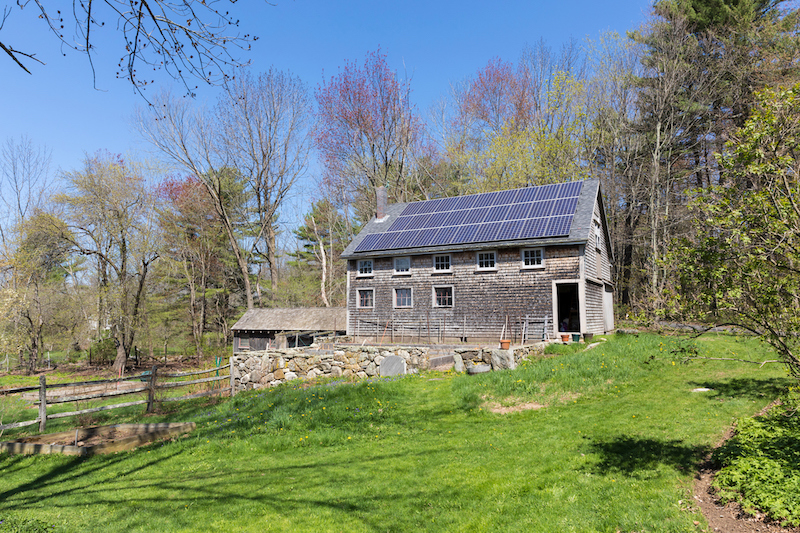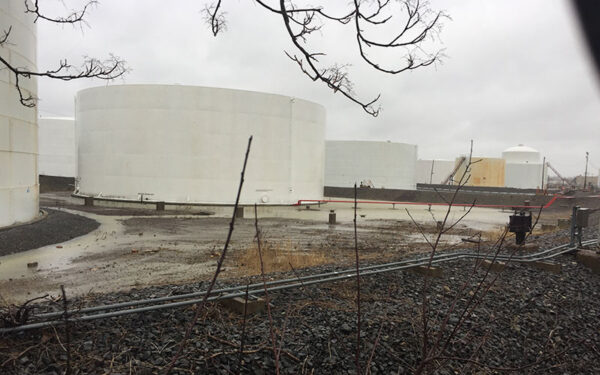
Net metering allows solar panel owners to more quickly recoup the costs of installing solar panels. Photo credit: Ecophotography
Net Metering Basics
- Net metering is a state policy that gives solar panel owners credit on their electricity bills for any extra energy their panels produce and send back to the electricity grid to power other homes and businesses.
- Net metering programs help business and homeowners recoup the up front costs of installing solar panels. Thanks to net metering programs and solar investment tax credits, annual solar installation has grown by over 1,600 percent since 2006, while costs for solar panels have plummeted 70 percent since 2010.
- This also helps people who don’t have solar panels – the electricity your neighbor sells back to the grid can be used to power your home, too. Getting energy from your neighbor’s house means you avoid the cost and pollution associated with energy sent from power plants farther away.
- Net metering is under attack in many states, as utility and fossil fuel companies don’t make as much money if families and businesses generate their own clean energy.
So, What Is Net Metering?
When a home or business owner installs solar panels on their roof, they generate electricity. Occasionally, they may still need to draw some power from the electricity grid, which is already connected to their home or business via poles and wires. At other times, the solar panels will produce more energy than they need.
Electricity can flow both ways along those poles and wires – from the electricity grid to a building, or from a home or business to the electricity grid. That means extra energy produced by solar panels can be sold back to the grid to help power neighboring homes and businesses.
In most states, policies have been enacted that allow solar panel owners to “sell” their extra electricity back to the grid for credits that can be used to offset their electricity bills later on. This policy is called net metering.
It makes sense: They shouldn’t pay the utility for electricity while the meter is running backwards.
Why Is Net Metering So Important?
Net metering helps home and business owners offset the cost of installing solar panels. This makes it one of the most important factors when someone – a homeowner, business, school, or community group – is deciding whether or not it makes financial sense to install them. With net metering, installing solar panels becomes more achievable, and we can produce more clean energy in more places.
This offers even further benefits. Generating more home-grown renewable energy like solar creates good local jobs and increases our energy security. It can also have economic benefits for the electricity grid as a whole – lessening demand at key times, decreasing wear and tear, and reducing the need for more costly poles, wires and power plants. And solar can help us break away from polluting fossil fuels like coal, oil, and natural gas. Installing solar panels on a home or business not only saves on electricity bills each month, it enables us all to rely less on the fuels that are damaging our climate.
We need to move away from dirty fossil fuels and towards local, renewable energy. It’s good for our wallets and good for the environment — and net metering will help us get there.
Everyone benefits from net metering – even our utility companies, if they would embrace innovation rather than cling to outdated ways of doing business. Most utilities make money from building more poles and wires. The more construction, the more profit. This incentivizes them to build unnecessary infrastructure, and to drag their feet when it comes to encouraging distributed energy generation like solar panels.
Why Is Net Metering Is Under Attack?
While basic net metering practices have been in place in the U.S. since the 1980s – and have been embraced by most New England states – utilities are resistant to what they see as an unfavorable change to their bottom lines. Before the spread of solar, power plants and utilities had a monopoly on our power supply and how we receive it. And they don’t want to relinquish that control.
The cost to install solar panels in New England and across the country has plummeted. This means more and more people have solar panels, and utilities are responsible for delivering less and less of their power. So while net metering is helping local economies and benefiting the environment, it’s not contributing to the coffers of the traditional big energy companies or big utilities.
So utilities are trying to limit it. Already, many states have a cap on how much energy a utility can draw from the solar panels on people’s homes and businesses. These caps can limit the amount of distributed, clean energy available – and limit our ability to reach our renewable energy goals and lower electricity prices.
Some states are even trying to get rid of net metering entirely. In extreme cases like Maine, this would allow utilities to charge solar panel owners for the energy they generate and consume themselves. In other areas, it would mean drastically reducing the credit solar panel owners get on their bills for selling electricity back to the grid. And while this would increase profits for utilities, it would severely limit the growth of the solar industry.
Locally generated energy like rooftop and community solar panels does pose a challenge to utilities’ current way of doing business. It asks utilities to revamp their business model and innovate with us – to modernize our electric grid and their business models to fit our 21st-century way of life.
Clean Energy Is Our Future: Net Metering Will Help Us Get There
The benefits of clean energy sources like solar outweigh the short-term discomfort to utility companies. So while net metering may not a complete long-term solution – we still need to update our electric grid to embrace local renewable energy sources – it’s a critical step on our path to a clean energy future. Local, home-grown energy makes our electricity grid more secure, reduces electricity costs, provides good jobs to the community, and helps us break our addiction to fossil fuels. We can’t let utilities hold us back from growing solar.
So what can you do? Sign our fight for solar pledge, and keep up with what’s happening around New England in CLF’s own fight for solar. Also, stay tuned for clean energy updates from CLF by signing up for our email list.



